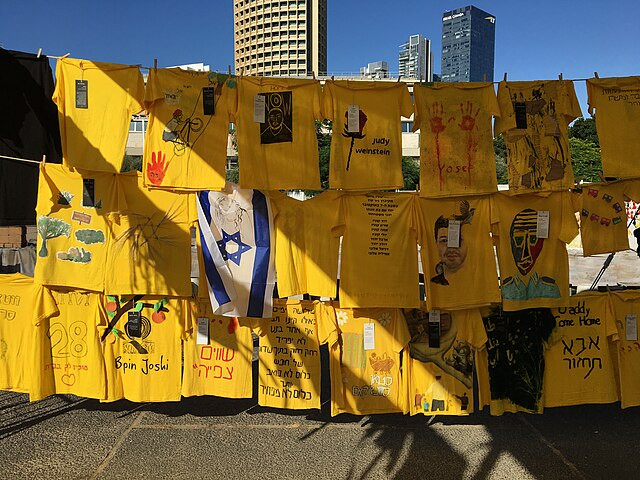Four Israeli female soldiers held hostage by Hamas since October were released Saturday under a prisoner swap agreement, marking a significant but tentative step in the ongoing ceasefire between Israel and the Palestinian militant group. The exchange, facilitated by international mediators, saw Israel free 200 Palestinian prisoners in return.
The Israeli Defense Forces identified the released soldiers as Karina Ariev, Daniella Gilboa, Naama Levy, and Liri Albag. Captured during Hamas's surprise assault on October 7, which left over 1,200 Israelis dead and around 250 hostages taken, the soldiers were paraded briefly in Gaza City's Palestine Square before being handed over to the Red Cross. Video footage showed the women smiling and waving as militants stood nearby. Rear Adm. Daniel Hagari, an IDF spokesman, later condemned the public display as "cynical and manipulative."
The freed hostages were flown to an Israeli base, where they were reunited with their families in highly emotional scenes. They were subsequently transferred to a hospital in Tel Aviv for medical evaluations. Crowds gathered outside the hospital, cheering as helicopters carrying the soldiers landed. "I had goosebumps watching them," said Aviv Bercovich, one of the many who came to show support. "I just want the war to end."
In Gaza, Palestinians celebrated the return of detainees with large crowds gathering in Ramallah and other cities. The 200 released prisoners included 121 individuals serving life sentences for deadly attacks against Israelis, according to the Israeli government. Among them were high-profile figures accused of orchestrating bombings and other violent acts. Seventy of the freed detainees were expelled to Egypt, with some expected to relocate to Algeria, Tunisia, or Turkey.
Despite the breakthrough, tensions remain high. Israel had planned to allow displaced Palestinians in southern Gaza to return north as part of the ceasefire agreement. However, Prime Minister Benjamin Netanyahu's office announced that the move is on hold until Hamas releases Arbel Yehoud, a civilian hostage who remains in captivity. A senior Hamas official has assured mediators that Yehoud will be freed next week, but Israeli officials are treating the matter with caution.
This is the second prisoner swap under the current ceasefire, which has temporarily paused airstrikes and rocket fire after months of intense conflict. The truce, brokered with the help of Egyptian mediators, is seen as a fragile step toward de-escalation. Earlier in the week, three other hostages were released in exchange for 90 Palestinian prisoners. The ceasefire has also allowed for increased humanitarian aid to flow into Gaza, a region devastated by Israel's military campaign.
The war, now in its fifteenth month, has taken a staggering toll. Gaza health officials report over 47,000 fatalities, with women and children comprising more than half of the deaths. In Israel, the October 7 attack marked one of the deadliest days in the nation's history, with civilian and military casualties mounting.
While the release of the four soldiers has brought relief to their families and supporters, it has also drawn attention to the dozens of hostages who remain in captivity. Among them are Kfir and Ariel Bibas, two young children whose fate remains uncertain. Kfir recently marked his second birthday while in captivity, an emotional milestone that has further galvanized public calls for their release.
The emotional weight of the hostage crisis has resonated deeply across Israeli society. In Tel Aviv's Hostages Square, where crowds gathered to watch live updates of the prisoner swap, many expressed a mix of relief and sorrow. "There were five girls, four are out and now she's there alone," said Yoni Collins, a family friend of Agam Berger, another soldier captured during the October 7 attack but not included in the release. "We're just waiting for her to come home."






